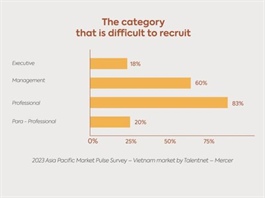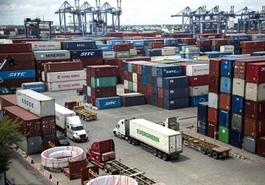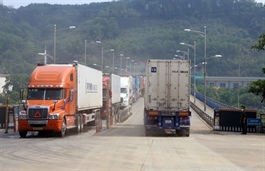Smoother regulations on the agenda
Smoother regulations on the agenda
With a low economic growth rate for the first half of the year, Vietnam is further truncating and eliminating business regulations which will benefit enterprises and investors.

Prime Minister Pham Minh Chinh last week asked ministries, agencies, and localities nationwide to urgently implement further administrative reform in service of the public and enterprises.
PM Chinh ordered them to “publicise in a timely, sufficient, and accurate manner administrative procedures on the National Database on Administrative Procedures so that cadres, public servants, the public, and businesses can know, implement, and supervise the implementation.”
On a monthly basis, procedures that are newly issued, amended, supplemented, or annulled must be made clear in full in order to ensure close control over the enactment and implementation of the procedures.
After growing 3.32 per cent in Q1 of 2023, the Vietnamese economy bounced back to 4.14 per cent in Q2. In the first half of the year, it increased 3.72 per cent, lower than the on-year growth rate of 6.42 per cent in the same period last year.
Nguyen Huu Lien, an overseas Vietnamese person living in Germany for 40 years, told VIR that he wants to come back to Vietnam to establish a logistics company.
However, Lien remains afraid that his plan in Vietnam may not become feasible. “I learn that in Vietnam, there are still many obstacles in business and investment conditions. For example, the current regulations on fire prevention are making it hard for enterprises to abide by,” Lien said.
“If a logistics firm invested about $125,000 into building a warehouse, it is required to invest in an anti-fire system worth about $42,000, meaning one-third of the investment capital – quite a sum.”
Nguyen Minh Thao, head of the Central Institute for Economic Management’s Department for Business Environment and Competitiveness, agrees that this legal requirement is too strict.
“In fact, some enterprises with investment in warehouses cannot spend such money installing such a costly anti-fire system. More often than not, they seek ways to circumvent the conditions,” Thao said.
According to business associations in Vietnam, although the government has made great efforts to reduce and simplify many admin procedures, many regulations are still vexing businesses, investors, and individuals. In many localities and ministries, when a regulation is removed, another more complicated one is created.
The European Chamber of Commerce in Vietnam has also pinpointed barriers to investment in Vietnam. Respondents to a recent survey from EuroCham highlight the importance of improving the regulatory environment, developing infrastructure, and ensuring access to financing.
The report also emphasises that unclear regulations and onerous administrative procedures are the primary barriers hindering investment, with 53 and 50 per cent of businesses, respectively, citing them as the most significant regulatory obstacles impeding their operations in the country.
European firms are also facing challenges with visas and work permits for foreign workers. “Securing visas and work permits for foreign workers continues to pose persistent challenges, with over 80 per cent of surveyed businesses encountering various difficulties,” the report said. “The prolonged processing time for obtaining visas and work permits emerges as the most pressing issue.”
Adam Sitkoff, executive director of the American Chamber of Commerce in Hanoi, told VIR that facilitating prompt approvals of business licences is key.
“Greater use of e-government and e-approvals would also be a big step forward. There is no doubt that existing investors expanding operations is the best advertisement to attract new investment,” Sitkoff said.
“For Vietnam to be successful, non-productive red tape must be controlled and the country’s regulatory framework must be stable and predictable. Our members remain concerned with changes in policy and regulations which are inconsistent with international best practices – frequently seen in the digital economy space, for example,” Sitkoff added.
Senior economist Raymond Mallon, who has been working in Vietnam for over two decades, said that to make individuals, investors, and businesses perform more effectively, Vietnam’s government would need to take more drastic action.
“For example, stronger regulators that are independent of commercial interests are needed to enforce competition policy, to ensure standards (for example for health, education, and safety), and to oversee network industries (transport, power, and communications).”
A report released by the Government Office last week showed that since 2021, about 2,230 business-related procedures have been cut, reduced, or simplified.
However, around 700 out of just over 1,400 regulations that have been approved for being cut have yet to be fully implemented.























